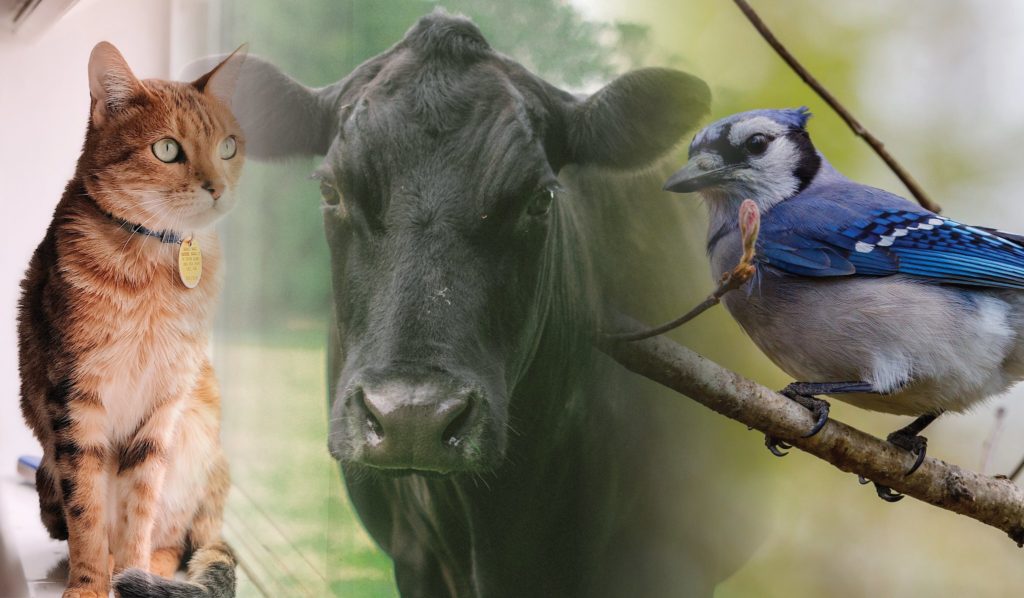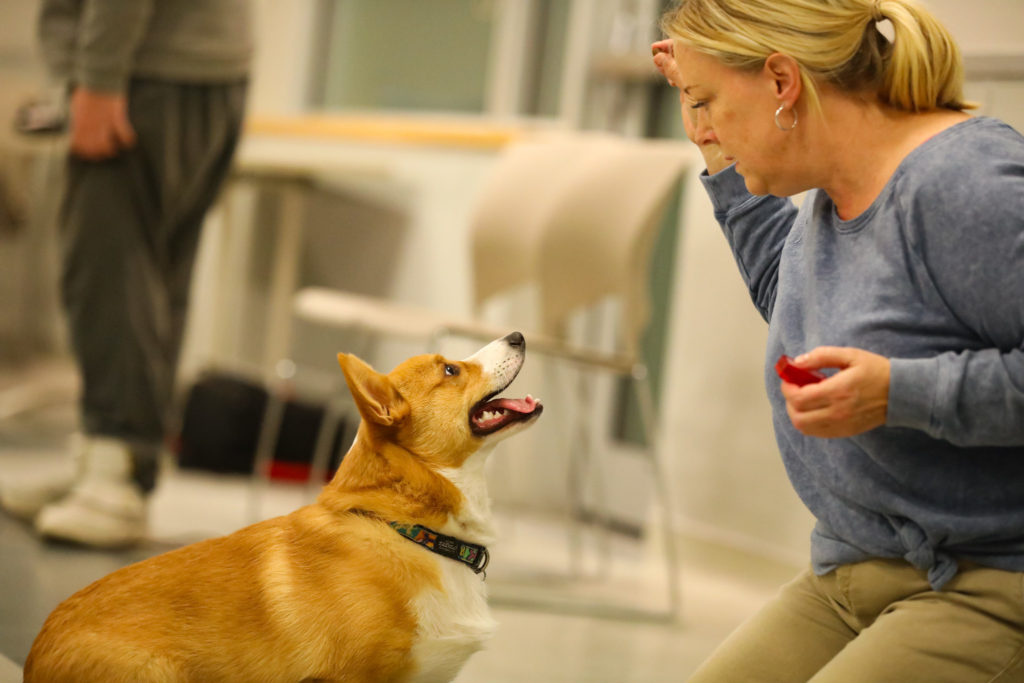Search Results for: wildlife
Assistant Veterinary Technician – Mobile Spay/Neuter Service
If you’re a compassionate and results-oriented assistant veterinary technician looking for the chance to grow, the OHS is the best place for you! Vet techs at the OHS enjoy a balance of independent and team work in a shelter environment helping a wide variety of animals with diverse medical conditions. Join our team as a Assistant Veterinary Technician – Mobile Spay/Neuter Service and help Ottawa’s animals!
WHAT OUR VET TECHS SAY:
“This is a wonderful team to work with, I have great coworkers who support and encourage me.”
“I love the fact that you see a much wider range of medical issues that you may never see in a clinic and that provides a wide range of learning and experience. We get to work with wildlife as well!”
“A lot of VA’s don’t realize that we work with a schedule/structure, not like ER or GP where you are waiting around until the veterinarian sees an animal to start a treatment plan. At the OHS, you’re constantly using your skills.”
“I like that we have a certain level of independence, and I like being trusted to make decisions.”
“There’s so much variety in our work and I find I work more closely with animals than in a private clinic. I also love not having to work with pet owners directly.”
“I love being able to see improvements of animals I’ve worked with and seeing them go up for adoption. It feels good knowing we’re making a difference.”
WHAT WE OFFER YOU:
Salary: $24.87 to $28.01 hourly
Benefits:
- Extended Health, Dental, Paramedical and Vision Care coverage
- Life and Disability Insurance (including paid short term sick leave)
- Vacation Days, Statutory Holidays
- Five additional Paid Leave Days
- Employee Assistance Program
- RRSP match
- Free on-site Parking
- Veterinary food and other supplies discount
- Career Development (internships, on-the-job learning, mentorships, internal and external training opportunities) and Paid Continuing Education Opportunities (bursaries, CE allowance, membership dues, tuition reimbursement)
Schedule:
- Full time position working 75 hours bi-weekly.
- Work schedule may include evening, weekend shifts, and holidays.
OHS Partner Support Program
So much more can be done for the animals when we work together
Our community came together to ensure that all animals were cared for, despite major fundraising events being cancelled and numerous operational challenges.
The OHS Partner Support Program was launched in response to the public health crisis, providing emergency funding and support to our community partners. It helped care for more than 2,800 animals by the end of 2020 and more than 7,200 animals to date. These animals include not only cats and dogs, but wildlife, birds and farm animals.
With its success and tremendous need, the program has been extended and will continue beyond providing emergency support through the public health crisis. Working together, we can build a more humane and compassionate community for all animals.
Local animal rescue organizations that meet OHS partner requirements can apply for the program. To learn more about how your organization can get involved in this program, email heatherh@ottawahumane.ca.
Supporting Our Friends
I’ve long believed that more can be done for the animals when people and groups work together as friends.
While the OHS is by far the largest animal welfare organization in Ottawa, there are others: local rescue groups, and groups that specialize in care for farm animals, birds and wildlife.
When the public health crisis began, we knew it would impact our services and our partners’ services. Our partners commonly rely heavily on events to raise funds for the animals in their care, and COVID put a sudden halt to events as we knew them.
To help support our partners through the financial challenges of the public health crisis, we raided the piggy bank and created the OHS Partner Support Program. By the end of 2020, the program had helped support more than 2,800 animals in the community that might not have received the care they needed without a boost.
Seeing this success — and the tremendous need — we knew the program should be more than emergency support during this time of crisis. We extended the program to run on a regular cycle and devoted more funds to it. Now, twice a year, partners can apply for grants using a simple application and providing a short report on what the support has done for the animals in their care.
To date, the program has helped our friends care for an astounding 7,200 animals in our community, and another round of support is coming shortly.
The OHS has long been a friend and a refuge for Ottawa’s animals. We also want to be friends to our partners, and helping out one another is what friends do.
Bruce Roney
President & CEO
2022 Media Releases
Winter Storm a Danger to Pets Ottawa Humane Society Warns (Dec. 22, 2022)
Badly Wounded, Pepper Sprayed Dog Recovering at the Ottawa Humane Society (Dec. 13, 2022)
Giving Tuesday — Donations to Ottawa Humane Society Doubled Until Nov. 29 (Nov. 24, 2022)
Santa Paws is Coming to the Ottawa Humane Society (Nov. 17, 2022)
Ottawa Humane Society Announces New President & CEO (Nov. 3, 2022)
Humane Society Says No Costumes for Fido (Oct. 20, 2022)
Haunting Event Returns to Ottawa Humane Society (Oct. 14, 2022)
Historic Wait Times for Foster Homes at the Ottawa Humane Society (Aug. 9, 2022)
Seven Abandoned Bunnies Arrive at Ottawa Humane Society (July 27, 2022)
Ottawa Humane Society Hopping with Rabbits (July 25, 2022)
Rising Temperatures Pose a Danger to Pets (July 15, 2022)
Ottawa Humane Society President & CEO Announces Retirement (July 14, 2022)
Canada Day Celebrations Pose a Risk to Pets (June 30, 2022)
Ottawa Humane Society Dog Seeking Foster Family (June 29, 2022)
Ottawa’s Biggest Event for the Animals Returns After Two Years of COVID (June 8, 2022)
Ottawa Humane Society Facing Mounting Costs as Power Outage Drags On (May 26, 2022)
Ottawa Humane Society Without Power (May 24, 2022)
Serious Danger to Pets Left in Cars as Temperatures Soar (May 12, 2022)
Battered and Bruised Great Dane Puppy in the Care of the Ottawa Humane Society (April 13, 2022)
Ottawa Humane Society Supports Partners in Animal Rescue (March 31, 2022)
Ottawa Humane Society and Ottawa Fire Services Partner to Protect Pets from Emergencies (Match 23, 2022)
Brutally Wounded Cat Rushed to Ottawa Humane Society (March 15, 2022)
Ottawa Humane Society Launches Lottery to Support the Animals (March 8, 2022)
Ottawa Humane Society President & CEO Condemns Mass Misinformation (Feb. 25, 2022)
Sought After Microchip Clinics Return to the Ottawa Humane Society (Feb. 24, 2022)
More than 40 Animals to be Spayed and Neutered at the Ottawa Humane Society (Feb. 22, 2022)
Happier Pets Are Just a Click Away (Feb. 14, 2022)
Ottawa Humane Society Warns Pet Owners to Take Caution During Cold Snap (Jan. 11, 2022)
The Catio: Bringing the Outdoors to Your Cat
A catio, or a cat patio, is an outdoor enclosure made for cats which allows them to be outside in a safe space. These areas are typically built outside a door or a window that your cats like to frequent. A catio gives indoors cats an area outdoors where they can lay in the sun, get fresh air and exercise.
Welcome Back: Programs Reopening
This morning, I got to do something I haven’t been able to do for a year and a half: I greeted a volunteer. She was so happy and so was I. During the pandemic, to protect our staff and thereby our ability to care for animals, all but our super-essential foster volunteer program were suspended. Slowly, though, volunteers are returning and it’s wonderful!
Last week, I wrote about the Shirley Kearns Memorial Adoption Centre reopening to visitors on September 8, and the life it will breathe into the OHS. But the OHS is much more than the adoption, centre and there are many other programs that need to be revived.
Of course, the new programs that were launched during and because of the pandemic: the Emergency Pet Food Bank and Partner Support Program will continue for the foreseeable future. Some other programs were moved online. Our Pet Loss Support Group will remain virtual for the coming months, as many participants have preferred this model. The OHS Scouts/Guides Program has continued successfully online and so we have not yet identified a date to resume in-person. Seminars will remain online until November.
Other programs offered on-site will require staff training and re-training and confidence in our ability to offer them safely, and so will be re-launched over time.
The OHS Newcomers Program, helping those who are new to the country navigate urban wildlife and pets in Canada, is expected to resume in fall 2021 for adults and in January 2022 for children.
Obedience Classes are expected to be available in-person in October and Pet First Aid Classes are expected to be available in late fall.
Pet Savvy, the OHS’s educational program for low-income pet owners, will restart in January 2022 and we are planning to resume the LEAD program for at-risk youth in November 2021.
Registration for programs for teens — the OHS Animal Advocate Program, Leadership Camp and Apprenticeship Program — is expected to resume in December 2021. For younger children and youth, the OHS is planning to resume school-based humane education programming and animal welfare clubs in January 2022.
Because of the unknowns associated with the Delta variant in children, camps and birthday parties as well as field trips and child and youth tours will remain on hold until January 2022, with adult tours planned to resume in December 2021.
Sadly, for the safety of our staff and clients, and to comply with restrictions from the province and Ottawa Public Health, the Mobile Spay/Neuter Service will remain suspended for the time-being. We are eagerly planning to resume this important service safely as soon as possible.
Because of concern about the ongoing risk to seniors, at this time, we don’t have a planned date for when Brightening Lives Animal Visits or Seniors Days at the shelter will resume.
The pandemic has taken a toll on all of us. It has affected every part of our lives. It has affected the OHS and our plans to build a caring and compassionate community. I can’t wait to get back to those plans, because right now they are needed more than ever.
Bruce Roney
President & CEO
Memberships, Associations and Collaborations
City of Ottawa and Bylaw and Regulatory Services
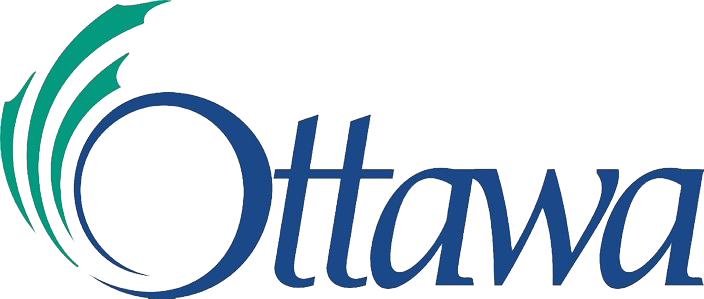
 The Ottawa Humane Society provides municipal animal sheltering services under a purchase of service agreement with the City of Ottawa. The OHS and the city collaborate on a variety of local animal welfare issues, such as animal care and control, pet shop and kennel licensing and the regulation of animals in entertainment.
The Ottawa Humane Society provides municipal animal sheltering services under a purchase of service agreement with the City of Ottawa. The OHS and the city collaborate on a variety of local animal welfare issues, such as animal care and control, pet shop and kennel licensing and the regulation of animals in entertainment.
The Ottawa Valley Wild Bird Care Centre
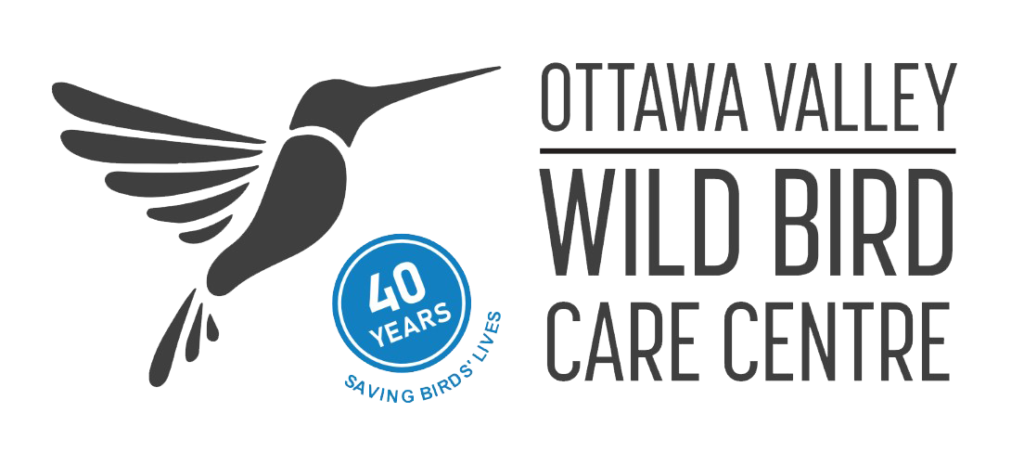 Wild Bird Care Centre is the only rehabilitation centre exclusively dedicated to wild birds. They play an important role in supporting conservation by providing care to the thousands of birds admitted each year, many of which are endangered or threatened.
Wild Bird Care Centre is the only rehabilitation centre exclusively dedicated to wild birds. They play an important role in supporting conservation by providing care to the thousands of birds admitted each year, many of which are endangered or threatened.
The Rideau Valley Wildlife Sanctuary
The Rideau Valley Wildlife Sanctuary treats and cares for injured or orphaned wild mammals and reptiles until they are healthy enough to be returned to the wild, and offers advice on co-existing peacefully with wildlife, and preventing or solving wildlife conflicts using humane, cost-effective ways.
Rideau Valley Wildlife Sanctuary treats and cares for injured or orphaned wild mammals and reptiles until they are healthy enough to be returned to the wild, and offers advice on co-existing peacefully with wildlife, and preventing or solving wildlife conflicts using humane, cost-effective ways.
Saving Lives with Communication
Over the past several years, as a part of our five-year strategic plan, the OHS has greatly expanded the volume of communication to our community and our supporters. Why? Well, if we are truly committed to a brighter future for animals, we need to do more than rescue them when they are sick, injured, lost or abused. We need to confront the issues that brought them to such dire circumstances. To do this, we need to create awareness, provide information and education and we need to support our community in caring for and about pets, wildlife and even livestock.
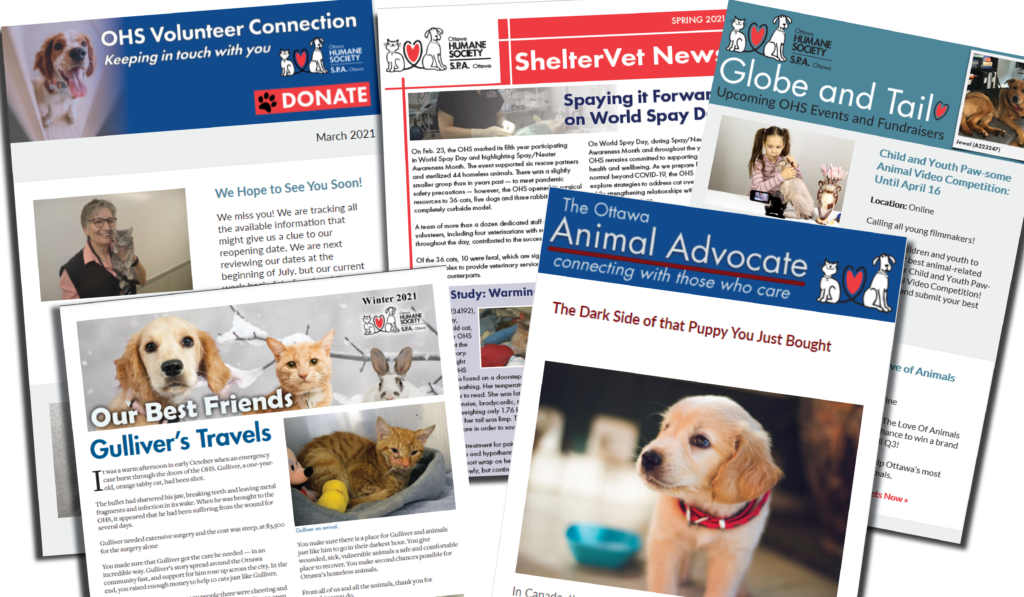
Here is the rundown of what we offer:
Our Best Friends (OBF) is a quarterly paper newsletter mailed to all OHS donors and stakeholders. OBF highlights the difference that our donors make in the lives of animals and the work and care that is only possible because of them, as well as amazing stories of miraculous recoveries and second chances. To be added to our OBF mailing list, just pop us an email.
The Animal Advocate is a digital newsletter that brings readers up-to-date on animal welfare news locally, provincially, nationally, and occasionally even internationally. In the Animal Advocate, expect to see stories about animals in captivity, pets, wildlife and even livestock and the issues that affect their lives and well-being. Moreover, you will find out what you can do to help.
The Globe and Tail is a monthly digital bulletin. It’s a rundown of programs and services available at the OHS as well as upcoming events — fundraising and those that are just for fun. Expect to see stories and notifications about camps and workshops, programs and events offered by the OHS.
Of course, there is this blog — focused on the OHS, issues in animal welfare, and our thoughts and plans about addressing these issues.
The OHS is very active on social media, regularly posting on Facebook, Twitter, Instagram and occasionally even LinkedIn. Follow us for announcements, celebrations, amusing memes, and updates on issues affecting Ottawa’s animals.
The OHS also publishes specialized offerings. The first, Volunteer Connections, keeps our 800 or so volunteers in the loop as to what is happening at the OHS, our plans, and volunteer activities and opportunities that are important to them. The OHS also publishes a short bulletin, Shelter Vet, for the veterinary community in the region. Shelter Vet provides local veterinarians with insights into the work we do, the trends we are seeing in animal health, and of course, sincere thanks for their support.
That’s a lot of communication, but I believe it is what our community needs to grow in its caring and compassion for animals.
Bruce Roney
President & CEO
A Guest Blog from the Wild Bird Care Centre
Despite strict public health measures in place across Ontario, animal rehabilitation centres, like the Ottawa Valley Wild Bird Care Centre, have kept their doors open throughout the pandemic. In fact, 2020 was a record-breaking year with more than 4,300 birds from 158 different species being admitted. Typically, winter is the slowest season at the Centre, but 2021 is proving to be even busier with double the intake compared to last year.
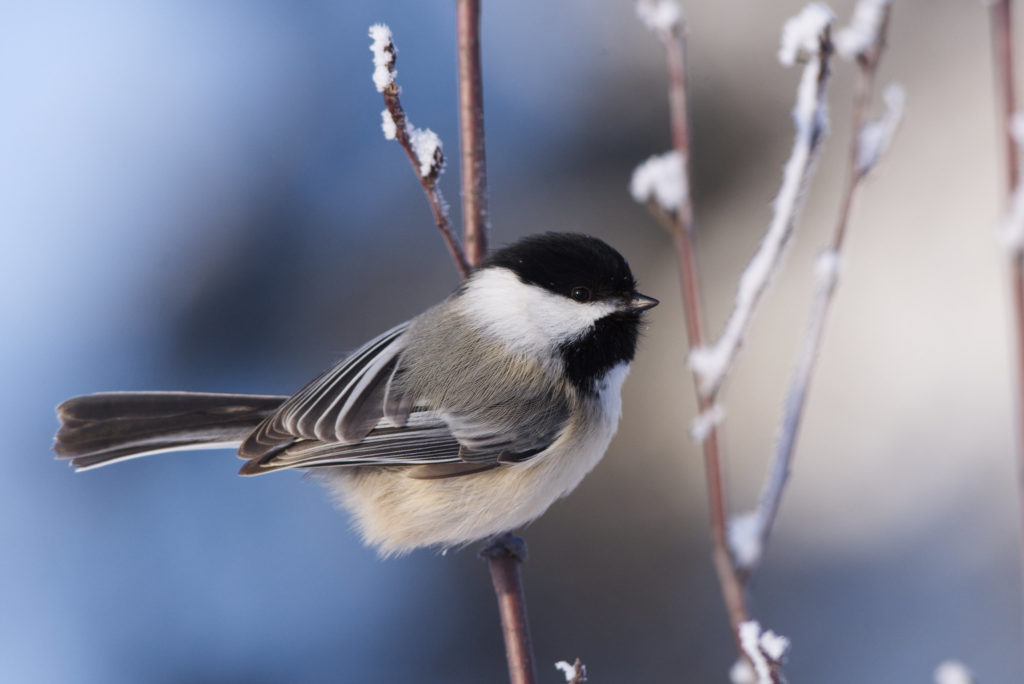
As migratory birds begin their journey back north this spring, the Centre is preparing to receive hundreds of injured, ill and orphaned birds. The three main reasons birds are brought to wildlife rehabilitators for care are cat attacks, window collisions and vehicle impacts. How can you help birds in your neighbourhood?
First, know when a bird needs help. You can tell if a bird is in distress if it is unresponsive, has poor balance, is puffed up, has a wing hanging or raised, is bleeding, or is covered in parasites or insects. A general rule of thumb is that if you can catch an adult bird, it needs help. If you find an egg on the ground, usually the best thing to do is leave it alone or put it back exactly where you found it. Contact a licensed wildlife rehabilitator to arrange for care of any injured, ill or orphaned wild bird as soon as possible. Do not try to care for the bird yourself as it is illegal and not in the best interest of the bird. Unlawful interference with a bird, its nest or eggs can result in legal repercussions if the bird is a protected species.
Another way to help wild birds is to create a bird-friendly environment. There are DIY products that you can apply directly to the exterior of a window to make it more visible to a bird. Make your garden bird-friendly by providing food, water and shelter. Adding and properly maintaining bird boxes, bird feeders, water sources and native plants greatly impacts the lives of our feathered friends.
Finally, don’t let your cat contribute to the problem. It is estimated that cats kill up to 350 million birds per year in Canada. If your cat must go outside, let them enjoy nature on a leash or in a catio. Not only is it safer for your cat, but you will be helping to avoid thousands of needless deaths.
Sandra Sawers
Board Director, Ottawa Valley Wild Bird Care Centre
2021 Media Releases
Abandoned Dog Needs Life-saving Surgery (Dec. 16, 2021)
Ottawa Humane Society Warns Against Cold Weather Dangers to Pets (Dec. 9, 2021)
Ottawa Humane Society and Ottawa Food Bank Partner to Feed Ottawa’s Pets (Oct. 21, 2021)
Ottawa’s Animals Need Foster Volunteers (Oct. 7, 2021)
Ottawa’s Rabbit Crisis (Sept. 23, 2021)
Donations to Ottawa Humane Society Tripled Until Sept. 15 (Sept. 13, 2021)
Ottawa Humane Society Cancels Annual Wiggle Waggle Walk and Run, Shifts To Online Fundraising (Aug. 17, 2021)
Rising Temperatures Pose a Danger to Pets (August 9, 2021)
Sunny the Puppy Needs Your Help (July 26, 2021)
Foster Volunteers Needed at Ottawa Humane Society (July 22, 2021)
Celebrations for Reopening and Canada Day Pose Serious Risk to Pets (June 30, 2021)
Wild Animal Responsible for West End Cat Killings — New Police Evidence Shows (June 24, 2021)
Puppy Thrown from Car Window Lands in OHS Care (June 24, 2021)
More Deceased Cats Ignite Further Concerns (June 18, 2021)
New Organization Emerges to Champion Animal Welfare across Ontario (June 17, 2021)
OHS Relaunches Online “Catch the Ace” Raffle (June 16, 2021)
Ottawa Humane Society Offers Cash Reward to Bring West End Cat Killer to Justice (June 16, 2021)
Mother Cat Found Alone, Injured and Fending for Three Kittens (June 3, 2021)
Increased Danger to Pets Left in Cars as Temperatures Rise (May 19, 2021)
Ottawa Humane Society Launches Catch the Ace Raffle to Support the Animals (May 12, 2021)
Ottawa Humane Society Achieves Prestigious Accreditation by Humane Canada (Apr. 22, 2021)
Fatal Falls and Thin Ice, Ottawa Humane Society Warns of Spring Dangers for Pets (Mar. 30, 2021)
Ottawa Humane Society Launches Lottery to Support the Animals (Mar. 17, 2021)
Cat Found Frozen and Near-death Rushed to Ottawa Humane Society (Feb. 23, 2021)
Keeping Pets Safe During Cold Weather (Feb. 12, 2021)
Ottawa Humane Society Helps Thousands of Animals Through Partner Support (Jan. 28, 2021)
Emaciated Dog with Chain Collar Embedded in Neck Finds Shelter at Ottawa Humane Society (Jan. 21, 2021)

